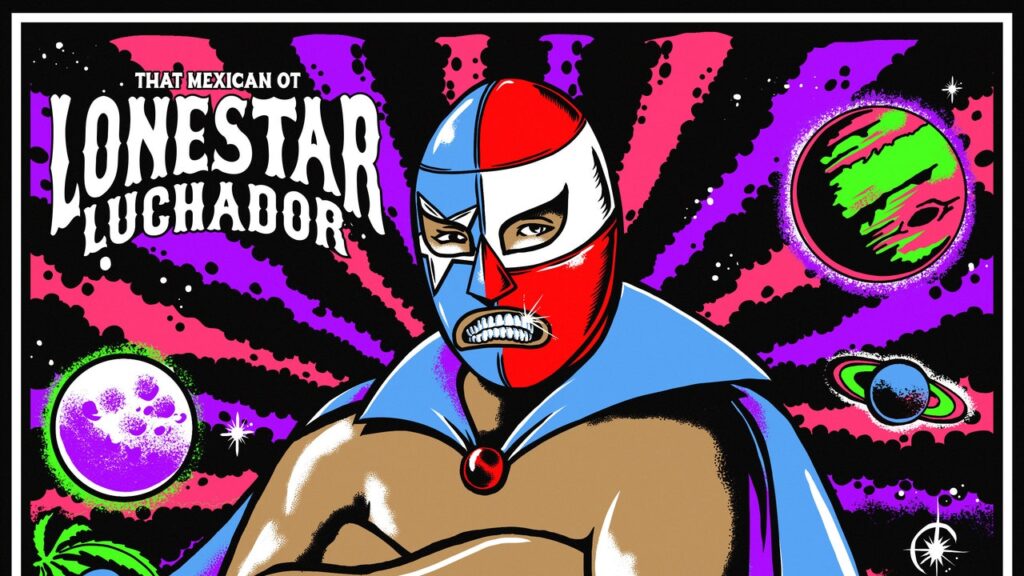
The influence of Latinos in hip-hop culture is especially potent in Texas; it’s hard to say what Houston rap would sound like without the lowrider and slab culture Mexican-Americans helped pioneer. Bay City rapper That Mexican OT—the “OT” stands for “Outta Texas”—wears his Tejano heritage on his sleeve. Defining his sound as “grito ranchero,” he blends samples of regional Mexican folk music with the thick 808s of Southern rap while delivering blustery rhymes with an unmistakable twang.
On his new album Lonestar Luchador, OT doubles down on state pride, filling his starting roster with fellow Texans. The exuberant BigXthaPlug guests on “Hit List,” while Maxo Kream goes bar-for-bar with him on “Opp 2.” Veteran Paul Wall pulls up for “Johnny Dang,” a tribute to the iconic Houston jeweler of the same name, a Vietnamese immigrant who became a grill designer to the chopped-up stars. The album is most evocative when it embraces Tex-Mex fusion, particularly on the corrido “Barrio”: Over the nostalgic strums of a six-string guitarrón, OT transforms into a passionate bandleader, crooning at the moon.
Though the loose lucha libre concept is mostly played for laughs in the form of recurring commentary from Dallas comedian Ralph Barbosa, you get the comparison: OT’s quick and nimble flow mimics the high-wire maneuvers of athletes like El Hijo del Vikingo and Komander. And much like a luchador might switch up their mask, OT switches between different personas. On “Skelz,” he rattles off the type of whimsical flexes that would be right at home in a Screwed-Up freestyle cypher—“I need a Burberry blender to make a protein shake”—and then goes full chopped-and-screwed on “OMG.” Tracks like “Breannan” channel the bluesy toxicity of Louisiana crooners like Kevin Gates, as OT violently fantasizes about revenge after heartbreak. But he’s capable of more than Southern charm: On “Cowboy in New York,” he adopts the rapid chopper flow of an East Coast battle rapper, spitting pure venom over a menacing piano line.
That Mexican OT is a consummate entertainer: Sometimes he’s a down-and-dirty villain who cheats to win, other times he’s a comical babyface and a boisterous drunk. On “Cowboy Killer,” he’s in pure crowd-work mode, transforming into a cartoon gunslinger alongside a jaunty saloon piano. All the while, he underscores how syncretic Texas music has always been, infusing traditions from both sides of the border with his own idiosyncrasies. The result is a brightly colored spectacle, a freestyle brawl of rap styles and regional flavors.
